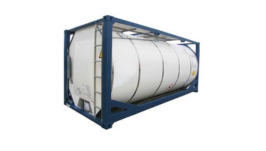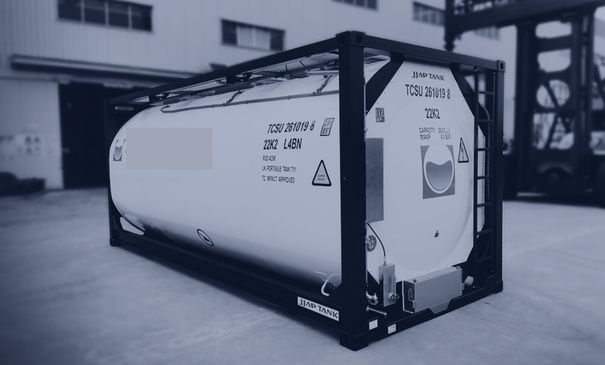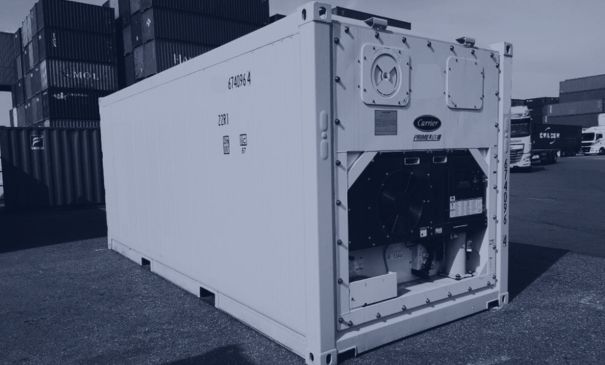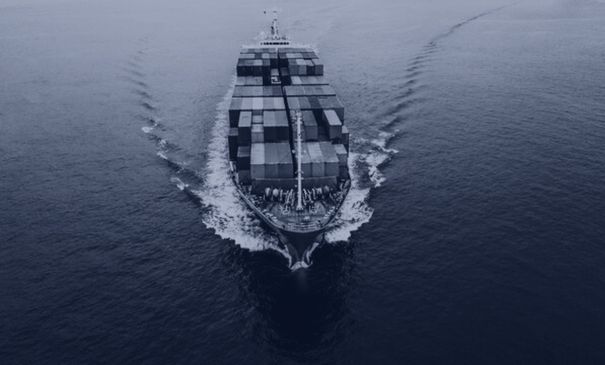Maritime Shipping
WE OFFER RELIABLE CONTAINER (FCL/LCL) AND BULK SHIPPING SERVICES, TAKING CARE OF THE ENTIRE PROCESS FROM THE DEPARTURE POINT TO THE CUSTOMER’S WAREHOUSE, INCLUDING ALL LIABILITIES, PAPERWORK, AND CUSTOMS PROCEDURES.
Maritime Shipping Services (LCL, FCL, BULK)

FULL CONTAINER LOAD (FCL)
Experience seamless worldwide shipping with our Full Container Load (FCL) service. From standard dry containers to specialized equipment like refrigerated and flat racks, we cater to all your container shipment requirements.

LESS THAN CONTAINER LOAD (LCL)
Maximize convenience and efficiency with our Less than Container Load (LCL) service. Ideal for smaller cargo volumes, our LCL option provides flexible shipping solutions tailored to your specific requirements.

BULK SHIPPING
Our Bulk Shipping service designed to handle large quantities of goods efficiently, our specialized solution offers cost-effective and reliable transportation for bulk cargo.

TEMPERATURE REGULATED
Discover hassle-free global temperature-regulated shipping with our specialized service. We ensure your goods' pristine condition using advanced refrigerated containers.
TYPE OF CONTAINERS

20ft container:
Internal:
Length: 5.9m
Width: 2.35m
Height: 2.39m
CBM: 33.2m3
Payload capacity: 25,000 kg

40ft container:
Internal:
Length: 12.03m
Width: 2.4m
Height: 2.39m
CBM: 67.7m3
Payload capacity: 27,600 kg

40ft HC container:
Internal:
Length: 12.03m
Width: 2.4m
Height: 2.5m
CBM: 76m3
Payload capacity: 28,620 kg

20ft Open Top container:
Internal:
Length: 5.90m
Width: 2.34m
Height: 2.35m
CBM: 32m3
Payload capacity: 28,200 kg
Roof opening: 5.68 x 2.25m
40ft Open Top container:
Internal:
Length: 12.03m
Width: 2.34m
Height: 2.35m
CBM: 64m3
Payload capacity: 26,600 kg
Roof opening: 11.81 x 2.22m

Flat Rack 20 container:
Internal:
Length: 5.70m
Width: 2.35m
Height: 2.24m
CBM: 32.7m3
Payload capacity: 27,150 kg
Tare weight: 2,360 kg
Flat Rack 40 container:
Internal:
Length: 11.66m
Width: 2.37m
Height: 2.28m
CBM: 51m3
Payload capacity: 39,300 kg
Tare weight: 4,900 kg

20ft Platform container:
Internal:
Length: 6.05m
Width: 2.43m
Payload capacity: 31,260 kg
40ft Platform container:
Internal:
Length: 12.19m
Width: 2.43m
Payload capacity: 39,300 kg

20ft Reefer container:
Internal:
Length: 5.45m
Width: 2.29m
Height: 2.25m
CBM: 28m3
Payload capacity: 27,490 kg
40ft Reefer HC container:
Internal:
Length: 11.58m
Width: 2.29m
Height: 2.50m
CBM: 67m3
Payload capacity: 28,350 kg

Tank container:
Internal:
Length: 6.05m
Width: 2.40m
Height: 2.55m
CBM: 32m3
Payload capacity: 17,500 to 26,000 liters




TYPE OF CARGO
- GENERAL CARGO
- SPECIAL CARGO
- GROUPAGE CARGO
- LIGHT INDUSTRY COMMODITIES
- HEAVY INDUSTRY COMMODITIES
- HIGH VALUE CARGO
- DRILLING EQUIPMENT
- HAZARDOUS CARGO
- PRODUCTION LINE
- EXPEDITED DELIVERY
- INDUSTRIAL EQUIPMENT
- OVERSIZED CARGO
- PERISHABLE CARGO
- TEMPERATURE REGULATED

WE SHIP CARGO WORLDWIDE
Countries in the world
0
tons per month
0
+
carriers in network
0
+
modes of transport
0
more satisfied customers
0
+
years in industry
0
FAQ
Why should I choose maritime shipping over other modes of transportation?
Maritime shipping offers several advantages, including cost-effectiveness for large shipments, the ability to transport bulky or heavy cargo, global reach to connect various ports, and lower environmental impact compared to air freight.
How long does maritime shipping take?
The duration of maritime shipping depends on several factors, such as the distance between ports, the shipping route, weather conditions, and the type of service chosen. Generally, it can range from a few days to several weeks or even months for long-distance voyages.
What types of cargo can be shipped by sea?
Virtually any type of cargo can be transported by sea, including dry goods (such as electronics, clothing, and machinery), liquid goods (like oil and chemicals), perishable goods (such as fruits and vegetables), and even vehicles or heavy equipment.
How do I calculate shipping costs for maritime shipping?
Maritime shipping costs are typically determined based on factors like cargo volume, weight, distance traveled, shipping route, type of service (Full Container Load – FCL or Less than Container Load – LCL), and additional services required (such as customs clearance or insurance). It’s best to contact freight forwarders like us for accurate cost estimates.
Are there any restrictions on what can be shipped by sea?
Yes, there are certain restrictions on shipping hazardous materials, perishable items, or goods subject to international trade regulations. It’s important to consult with shipping experts or refer to the regulations of the countries involved to ensure compliance.
How can I track my shipment during maritime shipping?
We provide online tracking systems where you can monitor the progress of your shipment. You will typically receive a tracking number or reference code that allows you to access real-time updates on the location and status of your cargo.
What happens if my cargo is damaged during maritime shipping?
In case of damage or loss, it’s crucial to have insurance coverage for your cargo. You should contact freight forwarder immediately to report the issue and initiate the claims process. Keep all relevant documentation and evidence to support your claim.
What documents are required for maritime shipping?
Maritime shipping involves several documents to ensure smooth transportation and compliance with international regulations. Some common documents include a commercial invoice, packing list, bill of lading, export/import licenses, customs declaration, and any necessary certificates (e.g., phytosanitary certificate for agricultural products). The specific documents required may vary depending on the nature of the cargo and the countries involved. It’s advisable to consult with our experts to understand the exact documentation requirements for your shipment.
OTHER SOLUTIONS
Need consultation? Our specialists are here to assist. Contact us, and well find the best solution for you.
Our specialists are here to assist. Contact us, and well find the best solution for you.

We use cookies to ensure that we give you the best experience on our website. If you continue to use this site we will assume that you are happy with it.Ok
